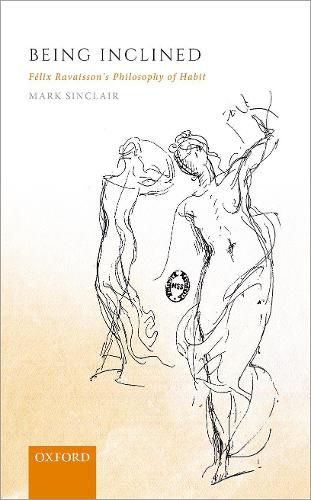Readings Newsletter
Become a Readings Member to make your shopping experience even easier.
Sign in or sign up for free!
You’re not far away from qualifying for FREE standard shipping within Australia
You’ve qualified for FREE standard shipping within Australia
The cart is loading…






Being Inclined is the first book-length study in English of the work of Felix Ravaisson, France’s most influential philosopher in the second half of the nineteenth century. Mark Sinclair shows how Ravaisson, in his great work Of Habit (1838), understands habit as tendency and inclination in a way that provides the basis for a philosophy of nature and a general metaphysics. In examining Ravaisson’s ideas against the background of the history of philosophy, and in the light of later developments in French thought, Sinclair shows how Ravaisson gives an original account of the nature of habit as inclination, within a metaphysical framework quite different to those of his predecessors in the philosophical tradition. Being Inclined sheds new light on the history of modern French philosophy and argues for the importance of the neglected nineteenth-century French spiritualist tradition. It also shows that Ravaisson’s philosophy of inclination, of being-inclined, is of great import for contemporary philosophy, and particularly for the contemporary metaphysics of powers given that ideas about tendency have recently come to prominence in discussions concerning dispositions, laws, and the nature of causation. Being Inclined therefore offers a detailed and faithful contextualist study of Ravaisson’s masterpiece, demonstrating its continued importance for contemporary thought.
$9.00 standard shipping within Australia
FREE standard shipping within Australia for orders over $100.00
Express & International shipping calculated at checkout
Being Inclined is the first book-length study in English of the work of Felix Ravaisson, France’s most influential philosopher in the second half of the nineteenth century. Mark Sinclair shows how Ravaisson, in his great work Of Habit (1838), understands habit as tendency and inclination in a way that provides the basis for a philosophy of nature and a general metaphysics. In examining Ravaisson’s ideas against the background of the history of philosophy, and in the light of later developments in French thought, Sinclair shows how Ravaisson gives an original account of the nature of habit as inclination, within a metaphysical framework quite different to those of his predecessors in the philosophical tradition. Being Inclined sheds new light on the history of modern French philosophy and argues for the importance of the neglected nineteenth-century French spiritualist tradition. It also shows that Ravaisson’s philosophy of inclination, of being-inclined, is of great import for contemporary philosophy, and particularly for the contemporary metaphysics of powers given that ideas about tendency have recently come to prominence in discussions concerning dispositions, laws, and the nature of causation. Being Inclined therefore offers a detailed and faithful contextualist study of Ravaisson’s masterpiece, demonstrating its continued importance for contemporary thought.